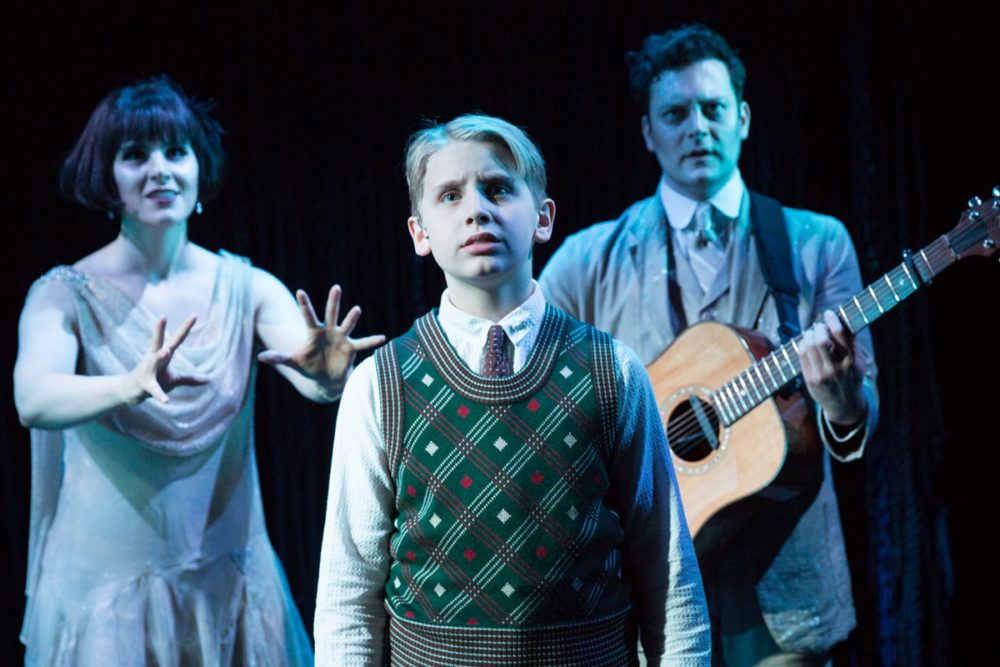On the afternoon of March 12th, 2020, about fifty members of the cast, crew, and creative team behind the musical Whisper House by Duncan Sheik and Kyle Jarrow was gathered in the dark at 59E59’s Theater A. They were in the final stretch of technical rehearsals, putting the finishing touches on the show before the first preview that evening. As the work continued on stage at its usual pace, nervous conversations were taking place in the wings and the back rows of the house, all centering around one whispered piece of news: “Have you heard? Broadway is going dark at 5pm.” Within an hour, the inevitable announcement came: the show was closing before its first public performance.
As theater artists across America are dealing with the loss and disappointment of untimely closings, I decided to catch up with the cast of Whisper House—Jeb Brown, Wyatt Cirbus, Molly Hager, Van Hughes, Samantha Mathis and James Yaegashi—and ask them about the rehearsal process, how they felt when they learned the show was closing, and their hopes for the future of the show.
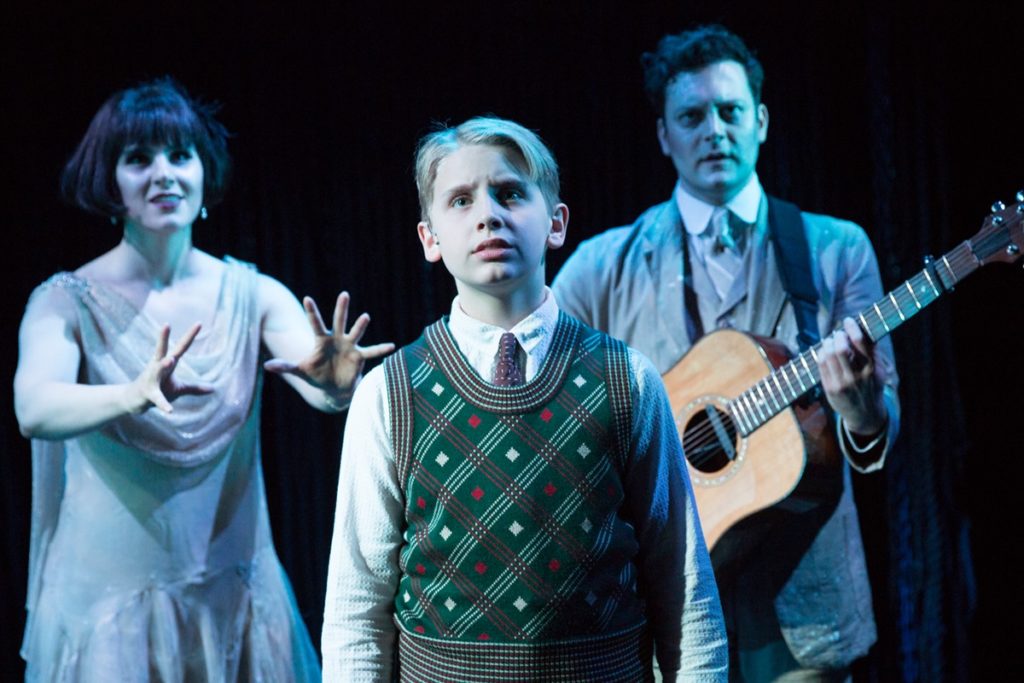
For all six actors, the creative team was a draw from the beginning. Molly captures the enthusiasm expressed by the whole cast: “If you had told college-aged me that I would someday be working on the New York premiere of a Duncan Sheik musical, I would’ve dropped to my knees and cried happy tears. I’ve also been such a fan of Kyle Jarrow and have always wanted to do a show with The Civilians, because who is cooler than them?” In addition to their excitement about the artists involved, the cast also felt deeply moved by the story. “I was very drawn to the script right from the get-go,” James remembers. “I like any kind of story that has to do with how we deal with ‘the other,’ and this story deals on multiple levels with how people behave and respond in the face of something that they’re not familiar with.” Samantha agrees: “I think what really moved me about the piece, and I believe makes the piece even more relevant today than it was a month ago, is the idea that fear in a time of crisis separates us and divides us and disconnects us from our humanity. And beyond that, the larger theme that we all have ghosts of the past that create fear that prevent us from living in the present.” As he dug into research for the show, Jeb found that his connection to the material deepened. “It has really been fascinating having reason to investigate those early months of World War II here on the home front, when our society was in the throes of adjusting to a wartime mentality,” Jeb notes. “Many of my uncles served in that war so I’ve found myself pouring over old family scrapbooks and finding new narratives in those photos.”
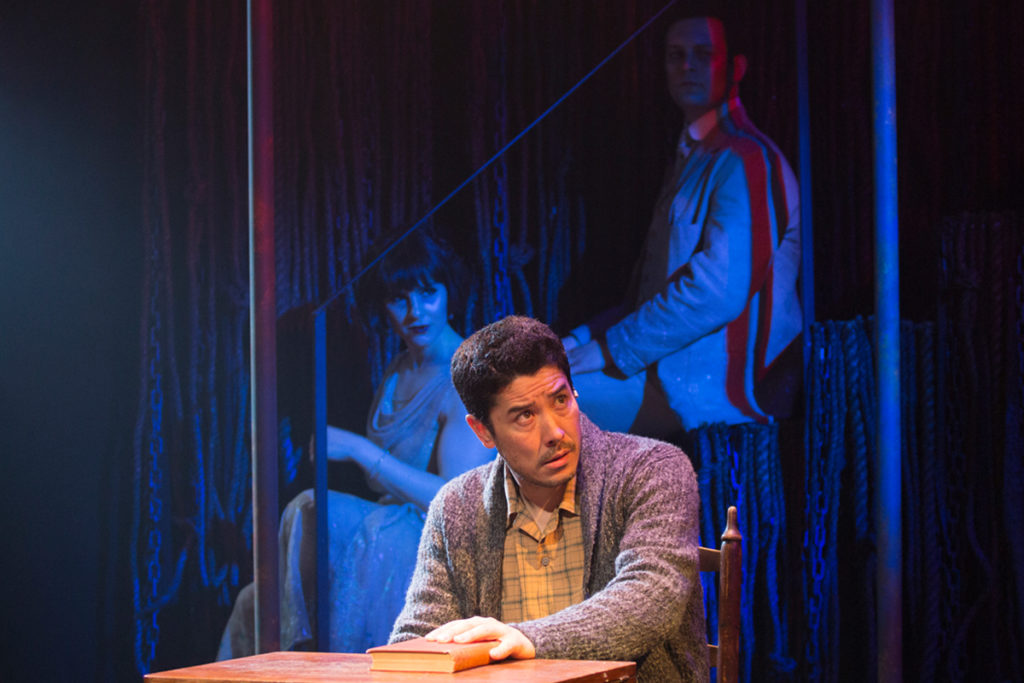
For some of the cast, the show posed exciting new challenges. Neither Samantha nor James had ever been in a musical before. “It was really thrilling to be in an entirely different kind of rehearsal process,” Samantha describes. “It really felt like, “God, I’m in the theater community at its highest right now.” James had a similar experience: “I gave myself this challenge to take a risk and do something that I’ve never done before, just see how much I can grow from it and learn from it. I had no idea how musicals got put together. I felt like it was, for me, even though I’ve been in the theater for almost going on thirty years, it was a huge learning curve. Seeing Van and Molly doing their thing, shouldering the bulk of the music, learning the choreography, and how they were able to absorb what’s given to them and then turn around and do it, it’s very inspiring.” For his part, Van was excited by the challenge of greater musical freedom. “Normally, actors and musicians are told what to do, and it’s their job to interpret,” Van explains. “I was getting to create my own guitar part based on Wiley’s music direction and the original album.” Not all of the challenge was musical. For 11-year-old Wyatt, playing the character of Christopher gave him the opportunity to explore a new kind of role: “I’m always an upbeat kid. I’ve always been that, and to be the one—almost bully figure? But also the main character? It was different and interesting.”
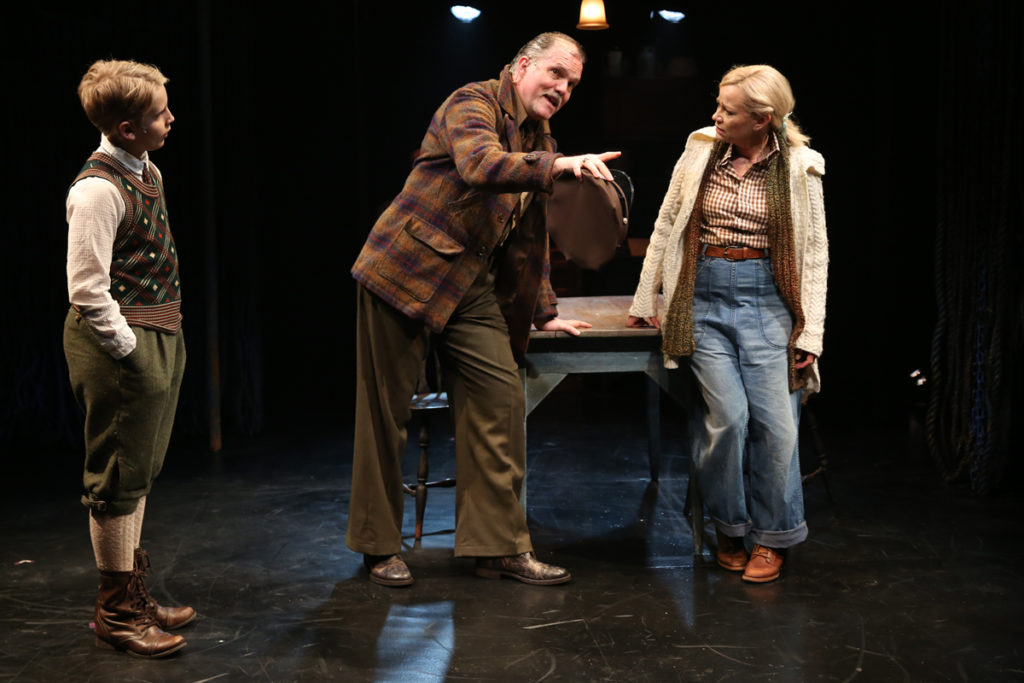
When I asked the actors about the rehearsal process, the word that came up most frequently was “collaborative.” Jeb offered me a possible explanation for this: “We had a wide spread of ages in the rehearsal room, from 55 all the way down to 11, which in my experience is somewhat rare. It definitely adds to the sense that we’re bringing a range of different perspectives to the work and that we are creating our own mode of communication. Add to that the fact that we are a mix of performers from across mediums, and you expand the reference points even further. We had to develop our own rhythm and vocabulary as a group, which means that less was assumed and there was more collective discovery.” Director Steve Cosson and the rest of the creative team set the tone for collaborative discovery in the rehearsal room. “I really appreciated how open Steve was about discussing ideas and interpretations with all of the actors in the room,” Molly reflects. “David [Dorfman, choreographer] paid a lot of attention to how his choreography worked on our bodies, and tailored it to make us look good. Wiley [DeWeese, Music Director] was very detail-oriented, but gave Van and I the freedom to really find our own way through each song. If we didn’t get it the first time, he trusted us enough to know that we’d get it the second or the third. It felt like a very safe and supportive room.” All of the actors remembered the rehearsal room fondly. “It was fun,” Wyatt recalls. “We joked around, but we got stuff done. We all just became friends.” Van noted one creature in particular who was responsible for the positive mood in the room: “We had a lot of fun in the rehearsal room with Samantha’s dog Annie. Our breaks were always filled joy!” For Samantha, the positive energy in the rehearsal room was all grounded in a connection to the story everyone was working to tell: “I think we all are really passionate about the story, and so there was a great enthusiasm to bring the play to fruition.”
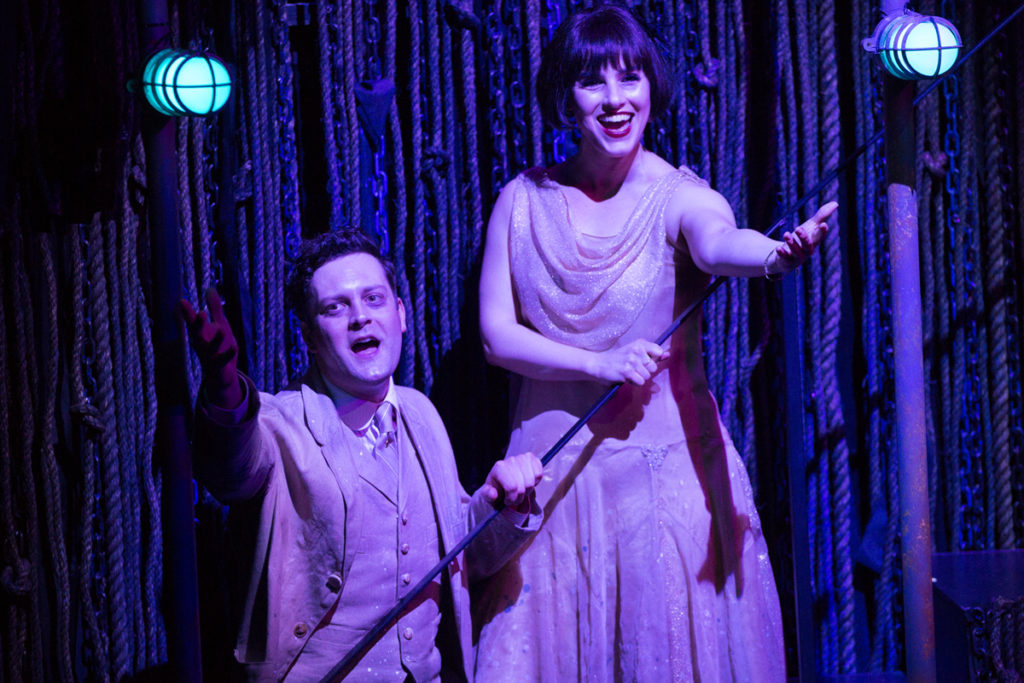
As the show went into tech and coronavirus panic was mounting in New York City, the cast had a sense of what was coming. “It started to feel like an impending sense of doom at the beginning of the week,” Samantha remembers. However, everyone was caught off guard by the speed of the virus’s impact. “I had been paying close attention to the news, so there was a part of me that knew we weren’t going to make it to opening night,” Molly explains. “There was no part of me, however, that thought we wouldn’t get to preview number one. Finding out that we would be shut down indefinitely hours before our first preview was completely heartbreaking.” “It was surreal,” James recollects. “I had a physical kind of sensation that was strange, where I kind of felt a numb buoyancy, like my body felt almost like a floating-in-water kind of feel.” The early closing of a show is always extremely painful, but the timing of the shutdown was particularly hard to process for the Whisper House cast. “On a rehearsal day like that, day of first preview, your entire focus as a group is on pulling together the finishing touches and riding a kind of background excitement towards that hour when you first unveil the thing you’ve been working on for over a month,” Jeb says. “Characters have come to life, relationships, an atmospheric world of sets and lights and projections and special effects. It’s like you’ve created an alternate universe and you’re about to invite others to visit you there, and suddenly you’re just turning off the lights and packing your bags and walking away from this beloved creation.” Through it all, the cast felt a strong obligation to support each other. “I think one of the hardest parts was, I tried to hide the fact with the rest of the cast that I was… devastated,” Wyatt recalls. “You can’t expect something like this to happen, and obviously there is a lot of pressure and stress put into the decision, and so I don’t blame anyone. We’re not only putting ourselves at risk, but everybody in the audience. But it’s disappointing that nobody got to see it. None of my family got to see it.”
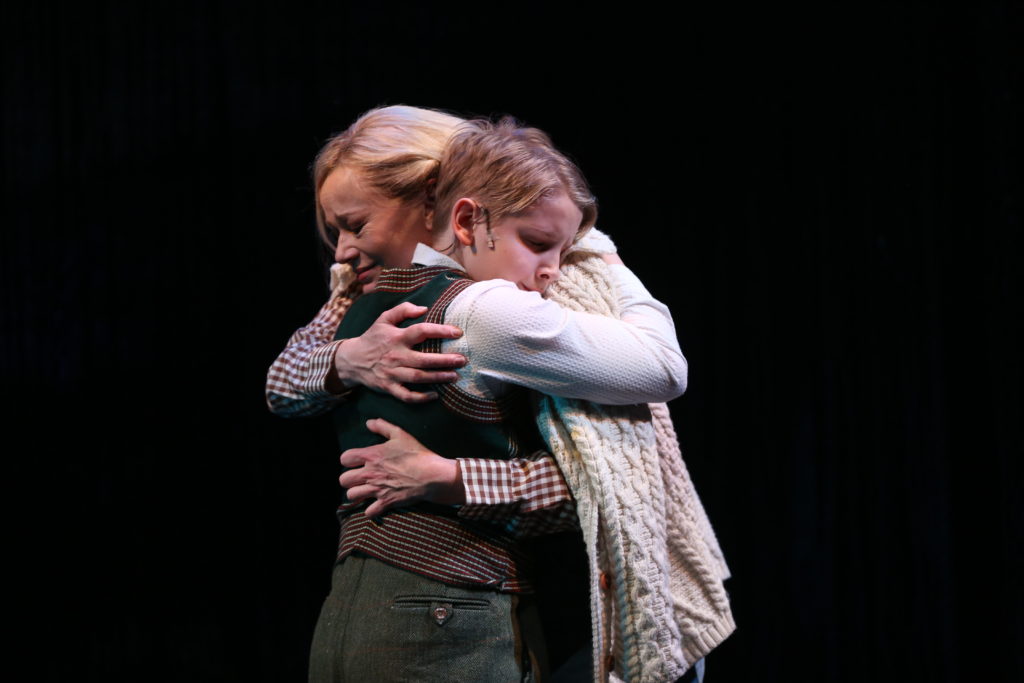
Even as the show was coming to an end, the cast recognized the new relevance the story was taking on in this time of national panic. Jeb describes the experience of watching this parallel unfold: “Here we were telling the story of people during an unprecedented onset of a new war that was threatening to arrive on their very shores, people trying to deal with an outside threat that was coming at them in unknown ways, and little by little our company members were living that very dynamic in our real lives, watching while we ourselves and others tried to understand what measures to take, who to listen to, and just how serious the encroaching threat had become.” To Wyatt, this made the show even more urgent. “Before we knew that it was coming to an end, I was kind of like, this is the perfect time to do the show,” he remembers. “It’s about people acting out of fear and panic and making the wrong decisions, and it shows that outcome. And that’s what’s happening now! I think it would’ve been great to do this play and say, ‘all right, we’ll do this play for you to show you that what you’re doing is going to have a consequence.’” Samantha concurs: “Whisper Houseshows that fear in times of war makes us become irrational, we make unsound decisions, and that the selfishness that comes out in us because of our fear can make us forget about our humanity.”
Although the future of the show is uncertain, the cast is hopeful about performing it for an audience at some point. “I want to see it happen!” James says. “The thing is, everybody’s in the same boat, nobody’s doing anything now. But this will pass eventually, and, unfortunately, I think human nature is the same, and we will always need these stories to point us towards our better selves. So I really hope this show gets done.” For now, Wyatt argues, the work the cast has done and the relationships they have built are no small reward. “We’ve made friendships, created bonds, worked with special people. Working with them was amazing. So, though it is devastating, I think just because we didn’t get to perform in front of an audience doesn’t mean that the whole thing was for nothing.”
Author
-

Susan Yassky is the Literary Associate for The Civilians and a New York City-based playwright and dramaturg. She was a Dramaturgy and Literary Management Apprentice at Actors Theatre of Louisville, where she worked on several productions in the 2019 Humana Festival of New American Plays. As a literary intern, she has worked at the Vineyard Theatre, Long Wharf Theatre and the York Theatre Company. Her plays have been developed at Actors Theatre of Louisville and Yale University. She received her B.A. in Theater Studies and Humanities from Yale in 2017. https://www.susanyassky.com
View all posts


